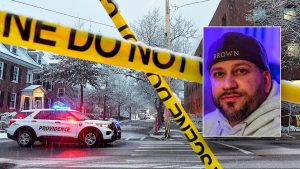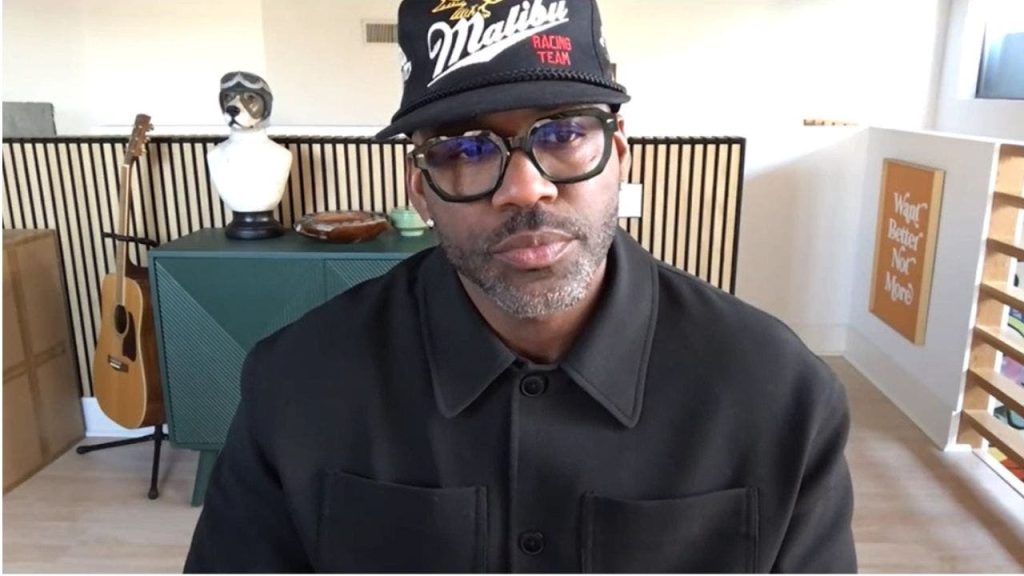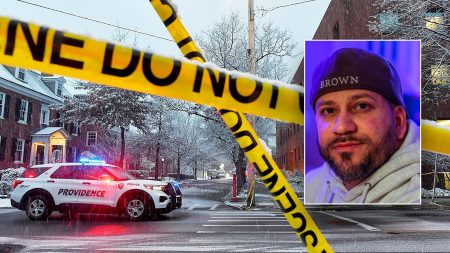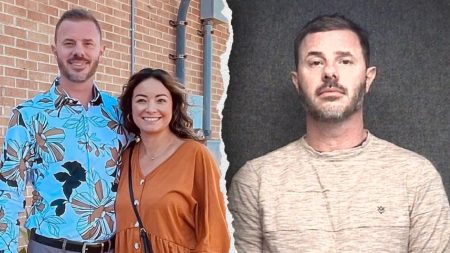Dolvett Quince, a familiar face from seasons 12 to 17 of “The Biggest Loser,” found himself among the countless Californians displaced by the recent wildfires sweeping through Los Angeles County. Initially learning about the fires through social media, Quince observed the smoke billowing from his home, a mere two miles from the Palisades. While he remained at home the first night, the air quality deteriorated rapidly, filling his house with the acrid smell of ash and smoke, irritating his throat, nose, and eyes, and affecting his dogs as well. Recognizing the evolving danger, Quince packed a bag in anticipation of a potential evacuation, which indeed came the following day. This preemptive action underscores the escalating nature of the fire and the growing threat it posed to residents in the area.
Upon first sighting the smoke, Quince initially underestimated the severity of the situation, dismissing it as unfortunate but not immediately alarming. However, the reality of the devastation hit him hard upon returning to his property. The landscape was drastically altered, littered with debris from damaged trees and shrubs, a testament to the fire’s destructive power. The roads remained clogged with debris, painting a grim picture of the extensive cleanup efforts ahead. Despite the disheartening scene, Quince maintained his characteristic optimism, drawing parallels to previous disasters like Hurricane Katrina and the devastation in Puerto Rico. He expressed confidence in California’s resources and the resilience of its residents, believing that collective action would lead to a stronger, more prepared community.
Quince’s optimism was further fueled by the outpouring of support within the community. He witnessed acts of kindness, with people distributing bottled water and offering assistance to those affected by the fires. This spirit of solidarity and mutual support inspired Quince to contribute to the relief efforts, further demonstrating the community’s collective resolve to overcome the disaster. This sense of shared responsibility highlights the power of community in times of crisis and underscores the importance of mutual aid in navigating challenging circumstances.
However, Quince also voiced a sentiment shared by many wildfire victims – disappointment in the government’s preparedness, particularly given California’s susceptibility to such disasters. Despite the well-known risks associated with wildfires and earthquakes, Quince felt the response and resources allocated fell short of what was needed, especially considering the high taxes paid by residents. This criticism reflects a broader concern about disaster preparedness and the allocation of resources to mitigate the impact of such events, raising questions about the effectiveness of preventative measures and the adequacy of support systems for affected communities.
Despite his criticism of governmental preparedness, Quince was effusive in his praise for the firefighters and first responders who battled the blaze. He lauded their rapid response and tireless efforts, emphasizing the significant sacrifices they make, often putting their own lives and families at risk. Quince advocated for greater recognition and compensation for these frontline heroes, highlighting the need for increased support and resources for firefighters, particularly in fire-prone regions. This recognition of the invaluable service provided by firefighters and first responders underscores the importance of adequately supporting and valuing those who put themselves in harm’s way to protect communities.
Quince’s experience reflects the complex tapestry of emotions and experiences that emerge in the wake of a natural disaster. From the initial underestimation of the threat to the realization of the devastating impact, the journey is fraught with uncertainty and anxiety. However, amidst the destruction and displacement, the spirit of resilience, community support, and gratitude for the tireless efforts of first responders shine through. Quince’s story, like those of countless others affected by the wildfires, serves as a testament to the human capacity to endure, rebuild, and emerge stronger from adversity, while also highlighting the critical need for improved disaster preparedness and a deeper appreciation for those who risk their lives to protect us.











